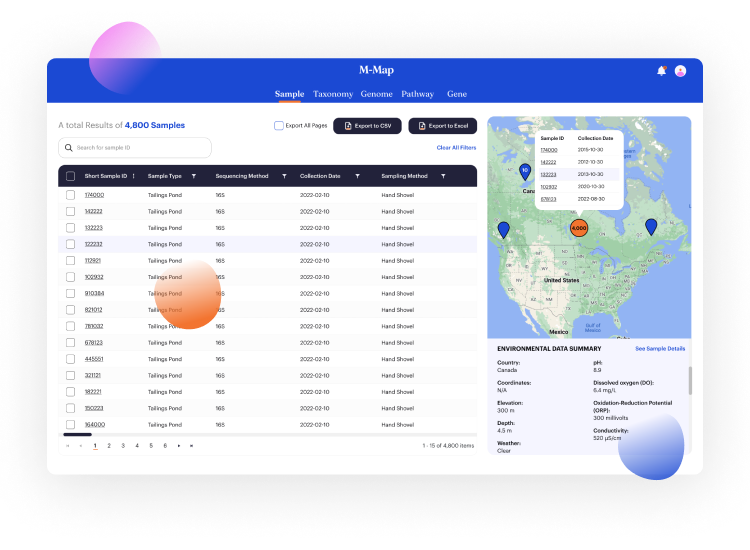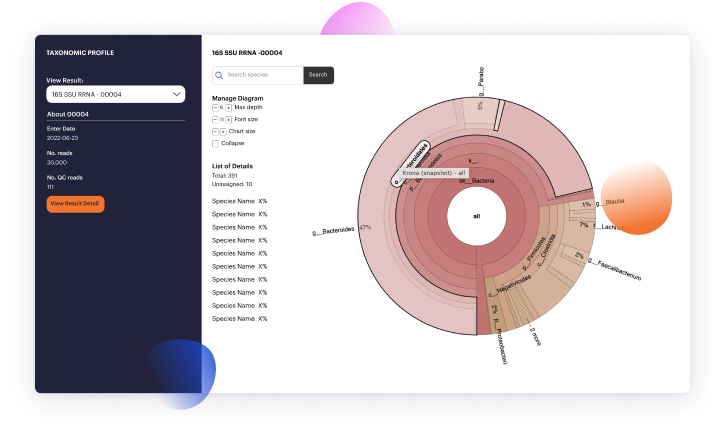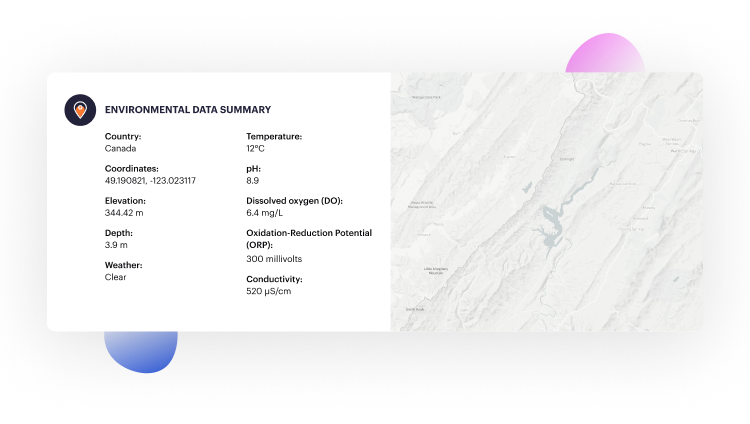Unearth the mining microbiome.
M-MAP accelerates the creation and deployment of microbial solutions for mining.
Mining Microbiome Analytics Platform
Mining Microbiome Analytics Platform (M-MAP) is an online sample analysis platform that accelerates the creation and deployment of microbial solutions for mining. Solutions to mining’s biggest challenges are right underneath our feet. The world is teeming with microscopic organisms - microbes.
Using microbes to recover copper, uranium, and gold from tailings has already proven to be cost effective and efficient. Why stop there? One of the biggest obstacles in developing innovative microbial-based technologies is that microbes are complex. M-MAP addresses this complexity using genetic sequencing and state-of-the-art computational analyses that extract key information about microbial communities so you can quickly understand who is there and what they are doing.
Access data from thousands of mining-related samples to reduce microbial solution costs.
Acquire analysis-ready environmental data to understand external factors that impact microbial communities.
Analyze and share new samples with state-of-the-art storage, sequencing, and bioinformatics.
M-MAP Demo Cases
-
Researchers can use data from M-MAP’s sample library to identify novel species and enzymes to assist with tailings stabilization.
-
Entire classes of microbes make their living metabolizing and mobilizing methane. M-MAP’s sample analysis service provides mining companies with the insights needed to understand and manage methane-producing microbes at mining sites.
-
About a fifth of the world’s copper production comes from bioleaching, but microbial mining doesn’t stop there. Use data from M-MAP’s sample library as a foundation for bioengineering element recovery solutions by identifying species, genes, and metabolic pathways with promising metal binding behaviour.
-
Don’t let your microbial neighbors be strangers. Use M-MAP’s sample analysis platform to detect early indicators of environmental changes by monitoring microbial community composition.

M-MAP Features
Sample Library
M-MAP’s sample library provides data from thousands of samples taken from a broad range of mining-related environments and mine waste structures. You can use the sample library to assist in the discovery of novel species, genes, and metabolic pathways that can be applied to processes spanning the entire mining lifecycle. With data from the sample library, you can answer questions about microbial community composition and function in a specific environment, how communities change over time, and the geographic range of individual genes or species.
Enhanced Data Control
M-MAP’s online platform makes it easier to control your sample data. Using M-MAP’s fine-grained access controls, you can securely share data from your samples internally, with specified external individuals or organizations, or publicly in complete or anonymized form.
Sample Analysis Service
You can use M-MAP’s sample analysis platform to accurately determine the composition and functionality of the microbial community at your sites. To start using the platform, request a sample kit from M-MAP’s online portal and download the sampling application for iOS or Android. Our sampling application will guide you through the sampling process and help you collect essential metadata such as sample location and temperature. Once M-MAP receives the sample, we store, prepare, and sequence it at accredited Canadian biobank and sequencing facilities. M-MAP also accepts sequencing data from third-party sequencing facilities that are compatible with our standard operating procedures. Sequencing data is processed using state-of-the-art bioinformatic pipelines and made available online in a searchable and analysis ready format. M-MAP provides additional environmental data collected from remote-sensing platforms to provide further environmental context and enhanced bioinformatic insights. Finally, you can request additional sequencing runs on samples stored in the biobank, reducing the need to re-acquire the sample from the field.
Frequently
asked questions
-
You retain ownership and control of any samples that you send to M-MAP along with any data produced using the samples. You can decide how much of the data to share with other M-MAP users, or choose to make the sample data completely private.
-
Yes. M-MAP includes mining-related samples from the Earth Microbiome Project (EMP), the National Center for Biotechnology Information (NCBI), and other public repositories that meet our minimum information and quality standards.
-
M-MAP performs SSU rRNA sequencing and whole genome shotgun sequencing (WGS). M-MAP can also perform long-read sequencing upon request. As sequencing technology advances, M-MAP may offer additional sequencing types, including re-analysis of earlier samples on newer platforms. Compatible data from third-party sequencing facilities can also be analyzed on the M-MAP platform. Information on primers and laboratory methods compatible with M-MAP can be provided upon request.
-
M-MAP uses a combination of open-source and proprietary components to analyze sequencing data. The pipelines are tuned for use with microbial DNA and make use of reference libraries derived from M-MAP’s sample library to deliver high taxonomic and functional resolution.











